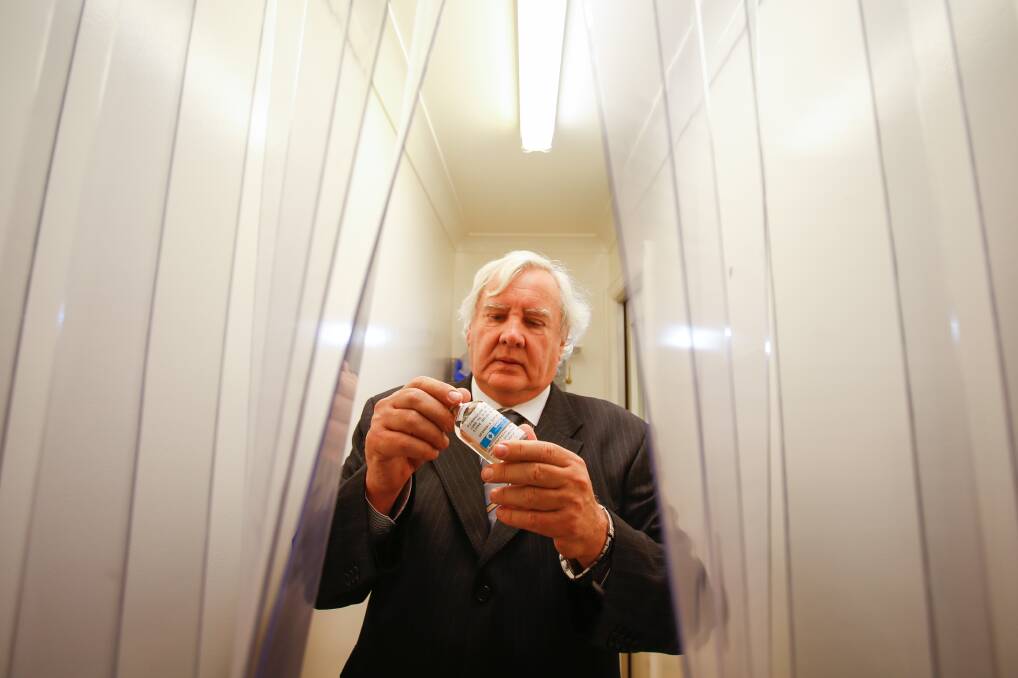
Illawarra cancer patients are taking part in global drug trials in an effort to save themselves, and future generations, from the insidious disease. This week, the groundbreaking results of one of those trials made headlines around the world. LISA WACHSMUTH reports.
Wollongong resident Sarah* doesn’t know if she’s taking a groundbreaking new drug to target her ovarian cancer – or simply a placebo.
Subscribe now for unlimited access.
or signup to continue reading
She’s one of many Illawarra cancer patients putting their faith in specialists – and science – to give themselves, other patients as well as future generations the best chance at beating the devastating disease which accounts for three in 10 deaths in Australia.
‘’Right now is an exciting time in oncology, with more advanced and clever mechanisms for cancer treatment than ever before.’’
The patients, mostly with stage three or four cancer, have in many cases failed to respond to first-line treatments such as chemotherapy and radiation. For some it’s their last hope.
All have grabbed the chance to take part in world-first, advanced clinical trials in their hometown, at a cancer clinic fast gaining an international reputation for its ability to provide accurate data.
There’s currently 15 drug trials running at the Southern Medical Day Care Centre run by renowned oncologist Professor Philip Clingan – with up to 10 patients in each – targeting a range of cancers including lung, brain, breast, stomach, prostate and ovarian.
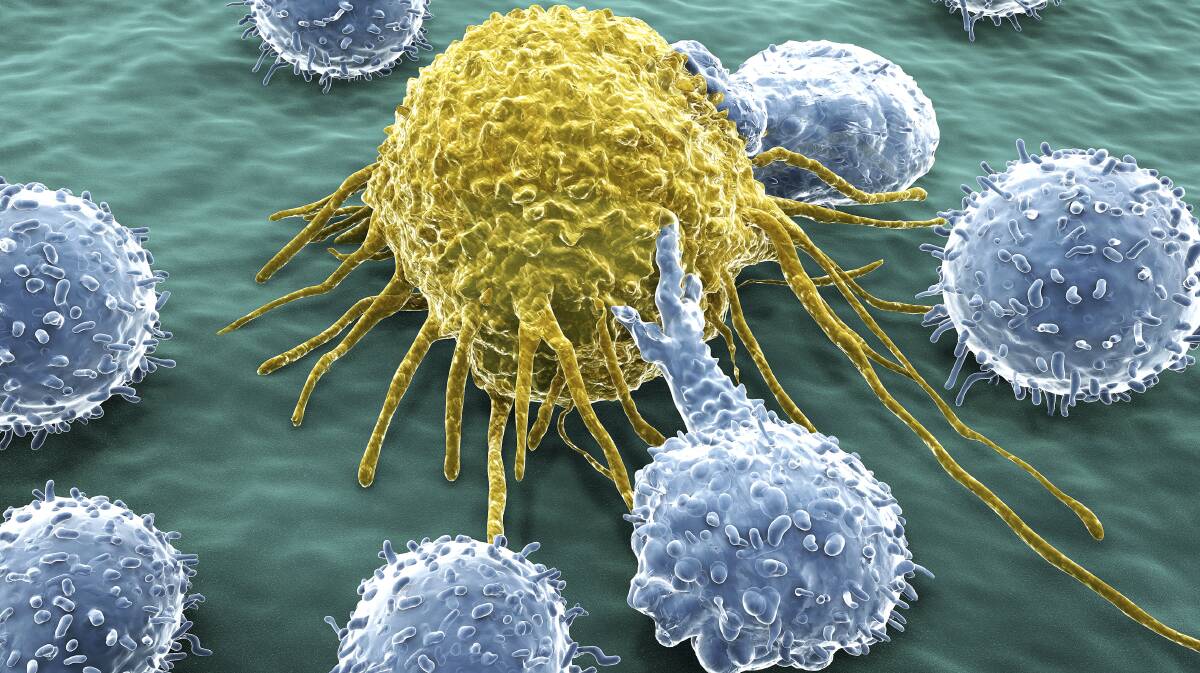
‘’For me it’s an opportunity to have access to a drug that has already been through phase one and two trials with promising results,’’ Sarah said.
‘’While I accept that because it’s a clinical trial I could also be having a placebo, I could be lucky enough to have a drug that – if it proves successful – wouldn’t be available to the general public perhaps for years.’’
This week, the groundbreaking results of one trial made headlines around the globe. The trial of the immunotherapy drug Keytruda is running at select sites internationally, including the Wollongong centre and Westmead Hospital in Australia.
The drug was shown to stop lung cancer spreading in almost half the trial patients after 12 months, making it three times more effective than chemotherapy.
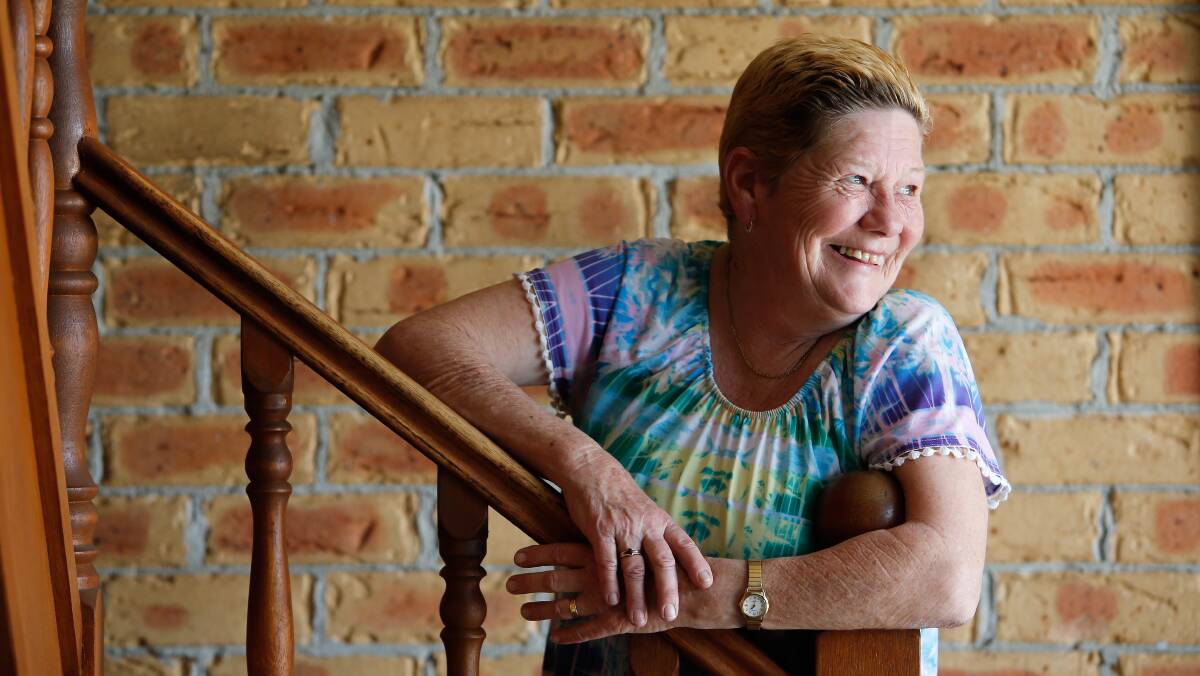
Unanderra’s Jennifer Harris is one of six Illawarra stage four lung cancer patients undertaking the trial – and her success story mirrors the overall results. The 61-year-old, who had secondary brain cancer, was given just months to live in June 2015. After surgery to remove two brain tumours, she chose the Keytruda trial over chemotherapy.
‘’My oncologist was very blunt – he told me I may not last till (last) Christmas because the cancer was aggressive and had already spread to my brain,’’ Ms Harris said.
‘’So I decided to take part in the trial and I haven’t looked back. I’m up to my 18th treatment, I’ve had no side effects, the tumour has shrunk, my brain scans are clear and I’m living life.’’
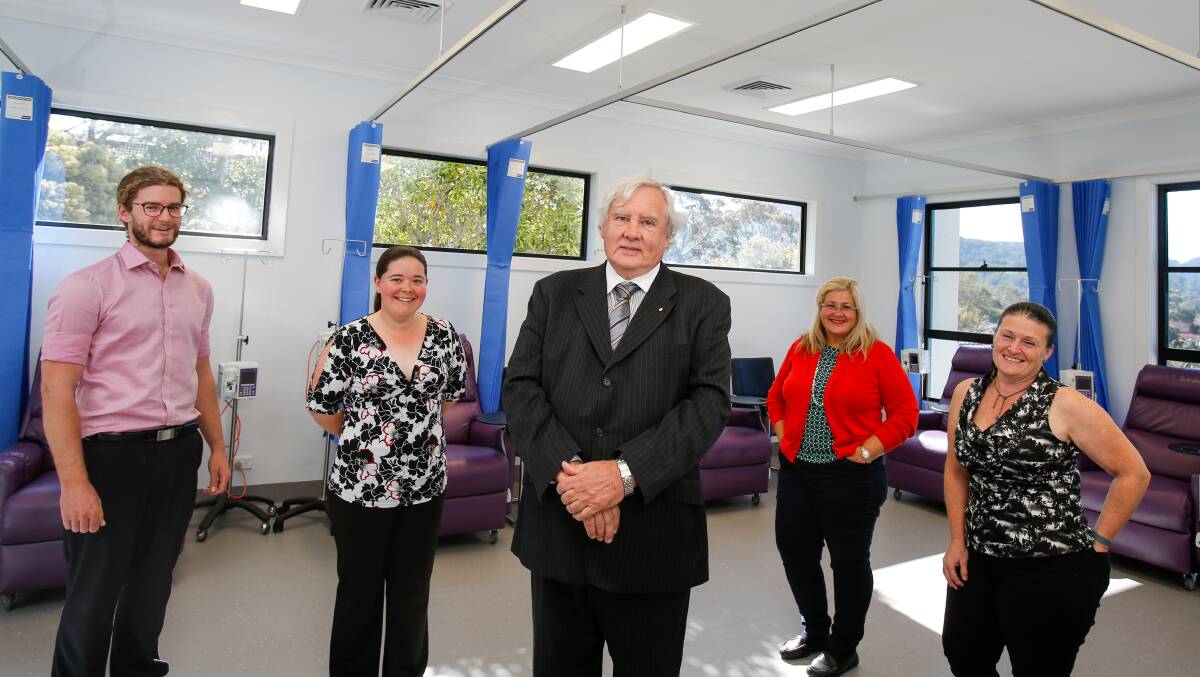
Wollongong oncologist Dr Ali Tafreshi – the principal investigator for the centre’s Keytruda trial – said the drug was a ‘’game changer’’. ‘’Our patients are among the first in the world to benefit from this treatment – and we’ve had amazing results,’’ he said.
‘’Of course not all trials end up with practice-changing outcomes like Keytruda. However even if there’s not positive results, patients never miss out as they are still getting the current standard of care.’’
Dr Tafreshi said while research in laboratories or on animals were important, it was only through clinical trials that doctors were able to fully understand how a new medicine would work in humans.
‘’The only way to prove a new treatment is firstly safe, and secondly more effective than the current standard of care, is through randomised and properly conducted trials.’’
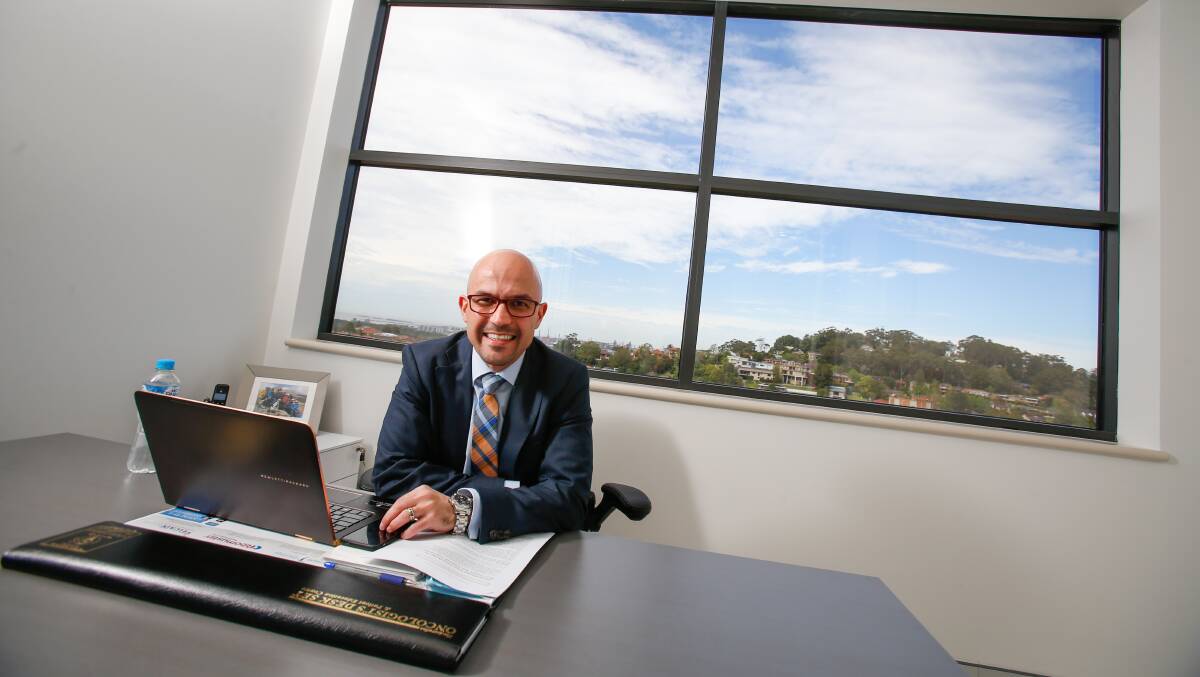
Over 130,000 Australians will be diagnosed with cancer this year according to Cancer Council Australia; more than 44,000 will lose their lives. While 19,000 more people die annually from cancer than 30 years ago due to population growth and ageing, the death rate has fallen by over 16 per cent.
That’s due to prevention programs; it’s also thanks to cancer research. That starts in the lab at centres like the Illawarra Health and Medical Research Institute and ends with human trials like those at SMDCC.
The private day-only hospital – which offers traditional treatment to cancer patients – took part in its first international clinical trial in December 1998. Both private and public patients take part in the trials.
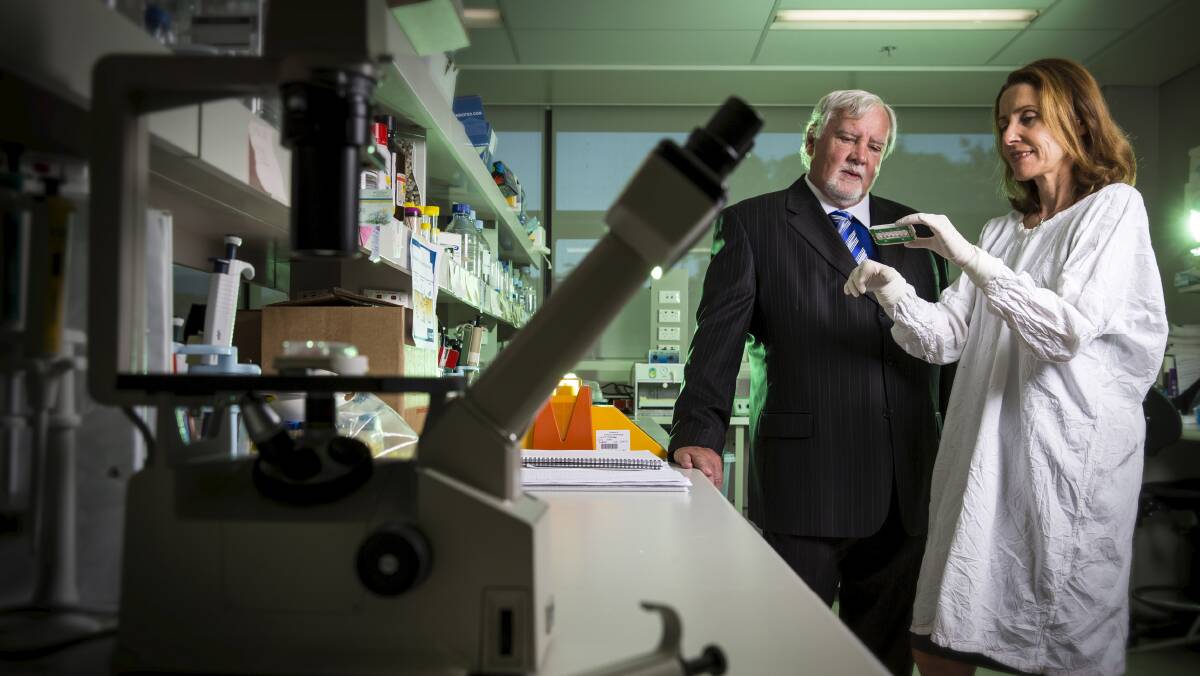
‘’Right now is an exciting time in oncology, with more advanced and clever mechanisms for cancer treatment than ever before,’’ Dr Tafreshi said. Immunotherapy drugs, like Keytruda, were the ‘’hot topic’’, with these drugs accounting for more than half the trials underway at the centre.
‘’Immunotherapy is a type of cancer treatment designed to help the immune system to fight the cancer,’’ Dr Tafreshi said.
‘’For instance, the Keytruda trial started two years ago with a group of patients with a new diagnosis of stage four non small cell lung cancer with a specific marker (PD-L1). This marker helps the tumour cells hide from the immune system, but Keytruda takes the brakes off the immune system allowing it to attack the cancer and kill it.’’
Another therapy showing positive results utilises what’s known as PARP inhibitors, and is proving of particular use in the treatment of breast and ovarian cancer.
‘’Tumour cells need to be able to repair their DNA to continue to grow. Some of the tumours like breast and ovarian tumours with BRCA mutations are reliant on an enzyme called PARP for repair their DNA. Currently we are running trials that are aiming to assess the effect of PARP inhibitors in addition to standard chemotherapy which has been very promising,’’ Dr Tafreshi said.
Other biological drugs which inhibit growth factors and block other pathways include EGFR inhibitors, now being trialled to target brain tumours.
‘’Some brain tumours have a receptor called EGFR. This new treatment is a toxin that has been attached to the EGFR antibody,’’ Dr Tafreshi said. ‘’Once the drug is injected, the antibody travels in the blood, it attaches to the cancer cells and releases the toxin into cancer cells, this type of treatment is called antibody drug conjugate.’’
Professor Clingan said many of the developing trials were utilising standard treatments in combination with the new therapies: ‘’They are the new treatment standards offering a multiple-targeted and personalised approach to treatments’’.
While patients – and their loved ones – agree to take part in trials to help themselves, there’s also a philanthropic reason behind their decision. Simply put, they want to help others.
For Sarah – Jennifer too – that’s certainly true. ‘’If your cancer is genetic, then you’re doing it for your family, your children too, as well as anyone else having to battle it, ‘’ Sarah (*not her real name) said.
And while increasing survival rates was so vital, Dr Tafeshsi and Prof Clingan said the trials were also about improving quality of life for cancer patients. Having trials available close to home, was part of that.
‘’At SMDCC we endeavour to access clinical trials that will offer patients in the Illawarra Shoalhaven region new treatments that are not readily available, not on the PBS or cost prohibitive,’’ Prof Clingan said.
‘’We are fortunate to have a dedicated team of health professionals across the public and private sector working together to provide a high standard of care to cancer patients negating the need to travel out of the local area for state-of-the-art treatment.’’
It’s something that’s made a big difference to local patients. ‘’At the end of the day I would have travelled anywhere to be involved – but the convenience of it meant I had one less thing to deal with,’’ Sarah said.
Patients need to talk to their GP and/ or specialists to find out about available trials.

